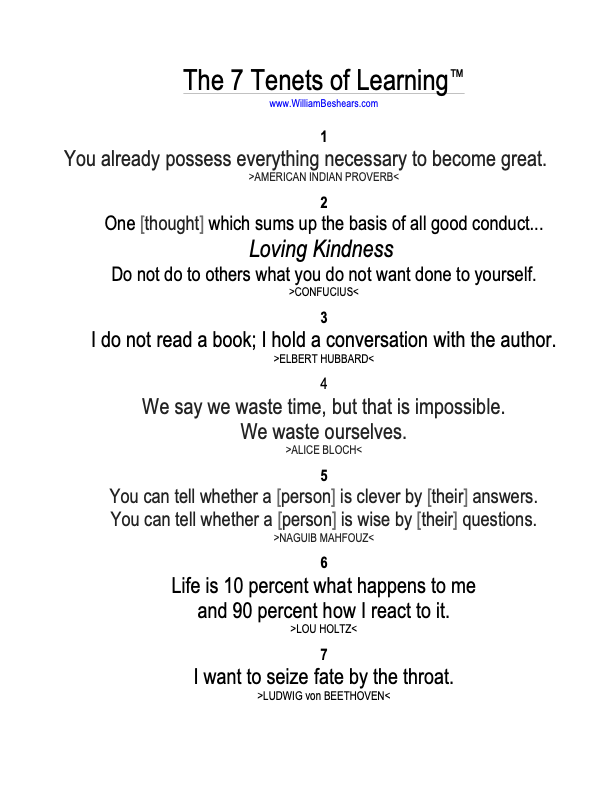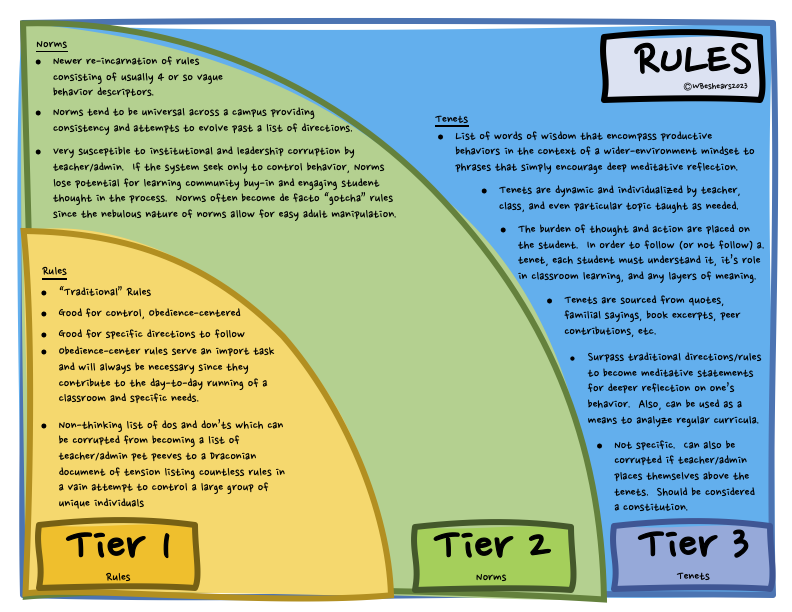The 7 Tenets of Learning
The 7 Tenets of Learning™: Transforming Classroom Culture
The 7 Tenets of Learning™ are a set of seven quotations designed to replace traditional classroom rules. These tenets act as cultural anchors, encouraging reflection, proactive engagement, and achievement across various areas. For over a decade, these tenets have been successfully implemented in upper-grade classrooms at Manuel A. Salinas Creative Arts Elementary in San Bernardino City USD. While these specific quotes have proven effective, the tenets are adaptable to suit different classroom environments.
Traditional Classroom Rules vs. The 7 Tenets of Learning™
Traditionally, classroom rules serve as behavioral limitations, often in the form of long lists of prohibitive activities or vague expectations like "Be respectful." These conventional rules can contract the classroom environment, grant unchecked teacher authority, and hinder learning and personal development. In contrast, the 7 Tenets of Learning™ categorize profound statements that expand classroom norms into personal and group goals.
The Benefits of the 7 Tenets of Learning™
Stand-Alone Merits: Unlike traditional rules that impose boundaries, the tenets provide opportunities to understand and shape perspectives towards the outside world.
Personalized Goals: Tenets can address various classroom culture needs, including personalized goals for all learners, not just those with behavioral issues.
Reflective Practices: They help develop reflective practices and can be used to critique systems and institutions.
Cultural Guideposts: The tenets serve as cultural guideposts, reordering the classroom power dynamic to prioritize the learning environment and curriculum. This allows both learners and teachers to improve their practice guided by humility and service.
Conclusion
The 7 Tenets of Learning™ offer a transformative approach to classroom culture, placing the importance of the learning environment above the individual roles of students, teachers, administrators, and parents. This innovative method fosters a more inclusive, reflective, and goal-oriented educational experience.

